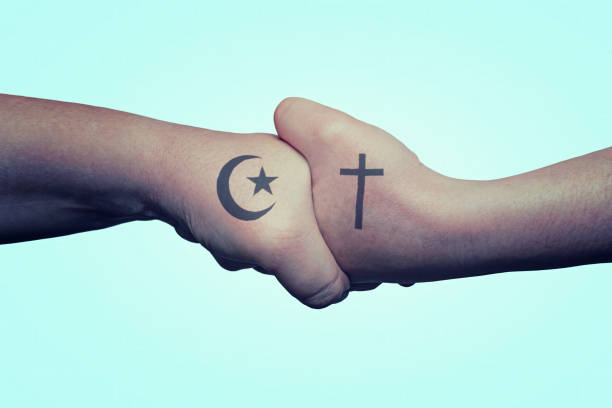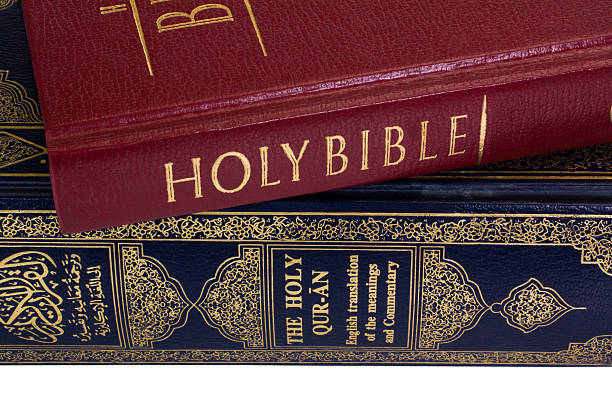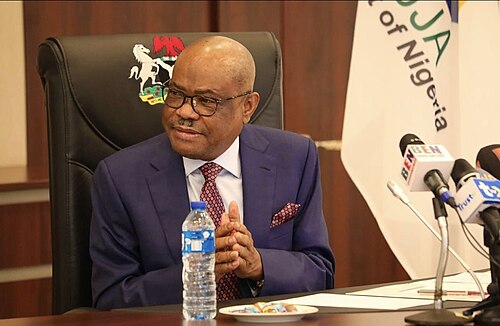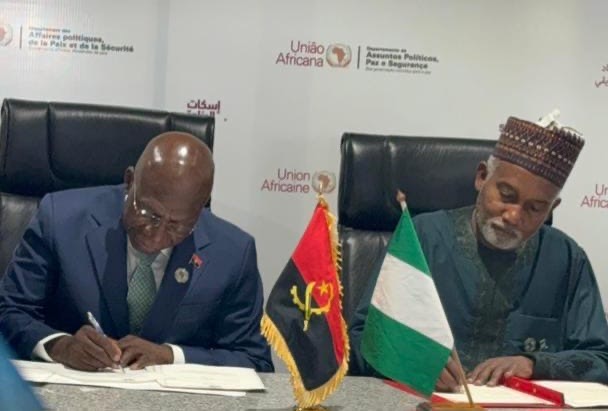Dear Beamers,
Greetings!
Nigeria, where diversity serves as the cornerstone of society, encompasses a myriad of tribes, cultures, and ethnic groups, thus rendering diversity perpetual and integral to our national identity. The richness of diversity manifests in variations of thought, norms, values, and subsequently, beliefs. Among these beliefs, religion emerges. While Nigeria’s religious diversity may not rival its cultural or linguistic diversity in terms of numbers, it nonetheless contends with challenges of tolerance. Therefore, as part of our commitment to providing comprehensive insights and updates, we are pleased to delve into the discourse surrounding religious coexistence within the nation of Nigeria.
Religion, distinct from disciplines such as Art, Science, and History, lacks a universally agreed-upon definition. However, it generally denotes a connection between humanity and a higher existence. It involves expressions of divine acknowledgment or belief systems and rituals pertaining to the sacred, unifying adherents globally. In essence, religion centers on the worship of an ultimate or absolute entity.
Consequently, the relationship between the transcendent and humanity necessitates complete submission and unwavering obedience. Across all human societies, man and religion are inherently intertwined. Religion is subject to varying interpretations depending on one’s perspective. It comprises a collection of truths, laws, and rituals through which humanity is brought into submission to the transcendent entity.
Nevertheless, religion lacks a universal mold due to the diverse experiences and environments shaping human beliefs in various forms of supremacy. Consequently, religion serves as a source of diversity in society, as individuals, despite shared classifications, hold contrasting life perspectives. Such divergence often breeds misunderstandings, with some individuals unwilling to accept the perceived inferiority of their religion to others. In this light, this dynamic has fueled conflicts and violence, not only in contemporary times but also as a result of inherited misbeliefs from ancient generations.
Religious communities have faced threats or the actual perpetration of acts with the potential to cause physical, emotional, or psychological harm to individuals or groups. Such acts vary from minor assaults to large-scale massacres and occur in various settings, including public spaces, homes, workplaces, and other areas of congregation. A defining characteristic of religious violence is the deliberate intent behind the actions, regardless of the resulting outcomes, which may include injury, death, psychological trauma, stunted development, or deprivation.
Violence inevitably arises when accommodating structures collapse. Religious violence is frequently regarded as a violation of the fundamental right to freedom of religion or belief, safeguarded by international human rights law. This right encompasses the freedom to practice, express, and alter one’s religion or belief, whether individually or collectively, in both public and private spheres.
“Those who engage in religious violence typically associate themselves with or claim to support a specific religious agenda. Their actions are often driven by, or in response to, religious beliefs, texts, or principles. This encompasses attacks on religious individuals, institutions, or symbols, as well as instances where the religious aspect of the target influences the attacker’s actions. Religious violence extends beyond actions carried out by religious organizations, also encompassing attacks perpetrated by secular groups against religious communities.” Says Abbey Toyin

Religious intolerance and violence in Nigeria have resulted in numerous casualties and substantial property damage amounting to billions of Naira. Rather than fostering progress, such violence obstructs the nation’s growth and development. Undeniably, the issue of religious violence seriously undermines the stability and order of the country. Nigeria has indeed witnessed alarming instances of religious violence, raising significant concerns about its societal cohesion.
The underlying causes of religious violence vary depending on the specific context. In Nigeria, consistent factors contribute to the emergence and perpetuation of religious violence, significantly impacting societal stability. Many religions possess sacred texts containing historical narratives that validate doctrines and outline methods of dissemination. However, due to a lack of comprehensive understanding, ignorance, misinterpretation, or deliberate manipulation, these scriptural texts are often subjected to arbitrary and manipulative interpretations to serve predetermined agendas.
Giwa Adunloye argues that religious intolerance frequently triggers emotional reactions and violence among followers of different religions in Nigeria. In her words,
“Religious intolerance is a stubborn mindset characterized by a strong aversion to beliefs and practices that don’t align with one’s own. This hostile attitude frequently boils over into violent clashes, impacting every aspect of citizens’ lives, from politics to the economy. The unwillingness to accept and understand differing perspectives is a key driver of religious violence in Nigeria. Among Nigerian Muslims and Christians alike, intolerance often escalates into violent confrontations.”
Moreover, poverty precipitates societal challenges, particularly when a significant portion of the population cannot meet their basic needs. The prevalence of poverty largely contributes to various forms of violence, stemming from issues such as unemployment, inadequate housing, and deficient physical and social infrastructure. Given Nigeria’s lack of a robust economic structure to support its large population, poverty exacerbates societal issues.
Individuals living in extreme poverty are driven to severe measures to sustain themselves, leading some to resort to offensive or coercive methods to convert or propagate their religious beliefs. Vulnerable individuals may be easily manipulated with minimal financial incentives, contributing to religious unrest. The ongoing economic downturn in Nigeria likely exacerbates the poverty problem, thus playing a role in the escalation of religious violence.
The persistent violence in the country fosters the emergence of social miscreants and criminals who, armed with weapons of warfare, pose threats to both their immediate communities and the broader society. Retrieving such weapons post-crisis proves challenging, given that many of these individuals were originally unemployed and found solace in terrorizing society. This crisis exacerbates pre-existing divisions among religious adherents. The psychological trauma endured by victims of religious disturbances is profound and enduring, perpetuating a cycle of unforgiveness and resentment towards those responsible for such atrocities.

Augustus Cyril contends that certain media outlets lacking religious inclusivity contribute to the promotion of religious violence. In his words,
“In Nigeria, the press has often stoked divisions through sensationalism and biased reporting. Media practitioners must tread carefully when covering sensitive topics that could disrupt societal harmony. Experience has shown that media reports can either foster positive or negative relationships between religious groups, particularly Muslims and Christians, depending on the journalist’s intentions and biases. The actions and reactions of these groups are frequently influenced by media portrayals.”
Genuine acceptance of religion as a unifying force between individuals and a supreme being, without imposing beliefs on others, represents a crucial initial stride toward averting religious intolerance and violence. Failure to recognize others as autonomous entities with the right to their own beliefs breeds religious fanaticism, characterized by violent and unreasonable enthusiasm for one’s religion. Religious fanatics in Nigeria demonstrate excessive zeal to defend their faiths, becoming agents of discord within society. Both Christian and Muslim adherents, influenced by fanaticism, are prone to resorting to violent confrontations at various stages.
It remains unchanged that every Nigerian identifies with one religion or another. However, many individuals opt not to fully comprehend the teachings of their religion, often relying on the guidance of religious leaders. Illiterates are particularly susceptible to manipulation for various self-serving agendas due to their lack of critical thinking skills. Religious leaders impart diverse beliefs and practices to their followers. In cases where indoctrination employs misguided methods, it can result in religious fixation, ultimately culminating in violence.
Phillips Madueke, a proponent of social change, believes that religious leaders play a significant role in promoting religious tolerance. In his view,
“In Nigeria, there exists a deep-seated mutual suspicion among its people. While some view Christianity as a tool of American and European imperialism, others perceive Muslims as having close ties with Saudi Arabia. This could have been less contentious if religious leaders prioritized peace and unity at the highest levels. However, some religious leaders, driven by self-interest, resort to unethical means to incite religious violence, knowing they’ll gain favor from the government in power. Rather than addressing pressing issues tearing at the nation’s fabric, they focus on trivial matters, worsening discord instead of fostering harmony.”
The extent of damage inflicted by religious violence in Nigeria is immeasurable. Frequent clashes have resulted in immense hardship for both individuals, through loss of lives and property, and the government, which is often tasked with providing relief materials for victims of religious disturbances. While there are numerous consequences of religious violence, the most evident one is the loss of lives and property, with innocent citizens bearing the brunt of such violence. Moreover, religious violence has the capacity to trigger widespread physical displacement and forced relocation of individuals, families, and groups.
The teachings of the Bible and the Qur’an are essential for fostering love and religious harmony in modern Nigeria; therefore, religious leaders should impart the genuine message of peace from their respective scriptures to their followers. If adherents of all religions are educated about the misconception of viewing individuals outside their faith as adversaries, peaceful and harmonious coexistence among people can be promoted by all religions.

For Nigeria, where religious diversity is a reality, fostering inter-religious dialogue is essential. The aim of such dialogue should not be to diminish the identity of any religious group involved, but rather to address the specific challenges threatening peaceful coexistence among them. Promoting inter-religious dialogue in Nigeria holds great potential for reducing religious violence. Religious bodies must come together to identify the fundamental principles of their faiths in the context of complex national and international issues. Collaboration and unity are vital in tackling societal problems, moving beyond mere rhetoric to tangible actions aimed at fostering harmony and understanding among all religious communities.
Furthermore, in order to prevent religious violence, the Nigerian Government must maintain an impartial and non-partisan stance towards religious groups at all levels—Federal, State, and Local. Individuals in positions of authority in a multi-religious nation should prioritize common interests over personal religious affiliations. All Nigerians should receive equal treatment and enjoy equal rights and privileges regardless of their religious backgrounds.
Understanding the implications of religious violence for stability in Nigeria, it is imperative to propose recommendations aimed at combating this issue. Strengthening and upholding the Constitution is essential, including respect for the rule of law, fundamental human rights, independence of the judiciary, and adherence to democratic norms and values. Government affairs should be conducted positively and progressively, benefiting the governed through adherence to due process and the rule of law. Recognizing faith as a personal matter, individuals should have the freedom to choose the religion that brings them solace and tranquility.




